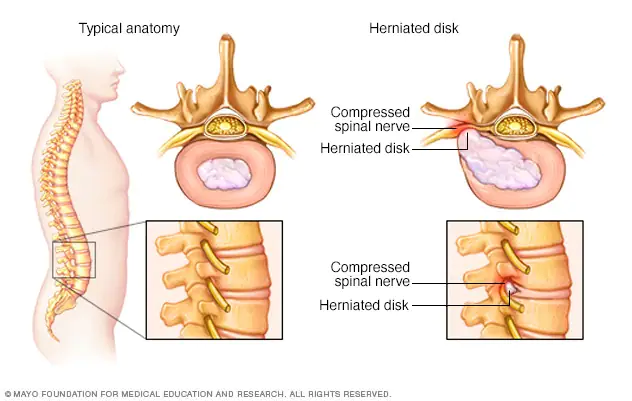Herniated Disc: What Is It and What Is the Causes?

Herniated disc is common, especially as people age. Herniation occurs when an intervertebral disc’s soft, gel-like center pushes out through a tear in its surrounding outer ring of cartilage (annulus fibrosus). Discs normally act as shock absorbers between the bones in your spine. With age and injury, they can wear down and become less flexible. When this happens, they may bulge or rupture, causing pain and other problems. Herniated disc Houston is often caused by trauma to the spine, such as falling down or lifting a heavy object. A herniated disc can also occur without any known injury.
Here are other causes of a herniated disc.
The causes of a herniated disc
Herniated discs mainly result from age-related degeneration. In other words, they occur more frequently in older people than younger ones because our bodies have less ability to repair themselves as we age. Trauma can also cause herniation, such as an injury during sports activities or motor vehicle accidents.
What are the symptoms of herniated discs?
Tingling and numbness: The pain associated with a herniated disc may be experienced as tingling or numbness in the legs, arms, or back.
Weakness in the legs, arms, or back: Loss of strength in the extremities can be a symptom of this condition.
Pain worsens over time: Herniated discs can cause long-term pain if not treated properly. The longer you wait to see a doctor, the more difficult it will be to treat your condition successfully.
Paralysis or weakness in one leg or arm: Severe cases of a herniated disc can result in paralysis or weakness in one leg or arm due to nerve damage from the injury.
However, the symptoms can vary depending on where in your back the herniated disc is located and how much nerve pressure there is. Some people have mild neck pain, while others can’t move their arms or legs because of severe nerve compression.
How is herniated disc treated?
The most common treatment for herniated discs is non-operative, meaning your doctor will prescribe medications, physical therapy, and other therapies to help alleviate your pain.
In some cases, surgery may be necessary to repair a herniated disc or remove the damaged portion of the disc. A surgeon may perform this surgery through an open technique or via endoscopic surgery.
Surgery aims at easing pressure on the nerve root. This can be achieved by removing part of the ruptured disc pressing against the nerve root. The removed material is then replaced with a bone graft obtained from either another part of your body or from a cadaver. If there are too many fragments to remove safely during one operation, they may be removed over several stages.
Recovery after surgery usually takes several weeks. After surgery, you should expect some pain in your back and neck. You can take over-the-counter pain relievers such as acetaminophen (Tylenol) or ibuprofen (Advil) as prescribed by your doctor until you can resume normal activities without pain or discomfort.
Treatment for a herniated disc is based on the severity of the injury and symptoms. Often, a doctor recommends conservative treatment options such as rest, medications, or physical therapy. The goal of treatment is to reduce pain and inflammation and prevent further damage. William Yancey, MD professionals, can help treat herniated disc problems. Get in touch with them today.
